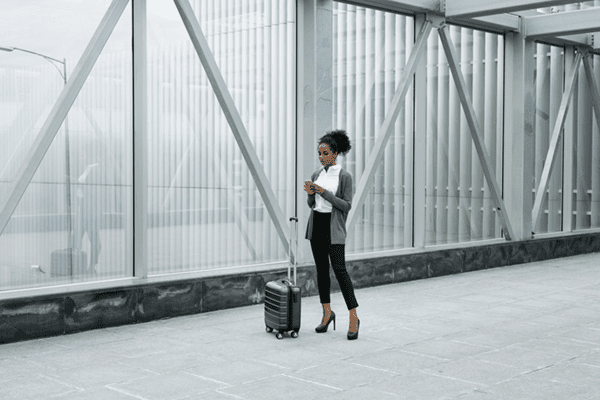
Security Tips For Business Trips
Could someone be stealing your information while you travel? Business travellers are facing an increasing level of threat from data theft, particularly as most of us carry valuable, sensitive and often ‘priceless’ data on our smartphones and laptops. Business travel is stressful enough so we have outlined some important security measures you can adopt to help protect your data and enhance your travel safety.
1. Use a ‘travel’ laptop.
Ensure your laptop is free of any confidential information. Ideally, it should be empty except for the Operating System and applications you plan to use. When you return home, format the HD before using it again. Many companies adopt this approach for their employees traveling abroad, particularly to China or Russia. Cyber thieves abroad will readily download your ‘sent’ or ‘received’ emails and can extract sensitive data from your laptop.
2. Secure your business laptop.
If you don’t have a spare “travel” laptop, then isolate it from cyber attack as much as possible by switching off Bluetooth, Wireless (Airport on Mac), the microphone, and the camera when not using for business. It is very possible that someone could watch and listen to you via your video, camera and microphone or read your emails over Bluetooth.
3. Avoid or limit wireless Internet connection at airport and hotels.
If you’ve traveled recently, you will have noticed that multiple wireless networks show up when you try to locate a network. Hackers frequently set up fake wireless networks, particularly at airports, giving them unlimited access to your computer when you connect. In certain countries even the official airport wireless network may be compromised. On any public Wi-Fi connection its best to limit email and social networking and avoid downloads.
4. Increase your smartphone security.
Use a disposable phone or buy one in country. Private emails, attachments and other files can be readily intercepted. In reality, it is difficult for most people to travel without their personal phone but take precautions and simply turn off the wireless connection unless necessary. Consider using an anti-theft phone app or security pouch and enable a remote wipe feature.
5. Take care with USB keys/flash drives.
If you save your presentation and other data on these drives, dispose of it when you return from your trip. Viruses are readily implanted into flash drives, particularly if plugged into a shared “host” computer at a conference. Equally, the contents of your flash drive may well be copied onto the host computer. Another good solution to safeguard your intellectual property is to use an encrypted flash drive or storage device such as Ironkey.
6. Use “disposable” passwords while travelling.
Often, the only thing standing between your data and a hacker are your passwords. Good security practice is to change your passwords before you travel to one-time passwords. You can then revert back to your original passwords when you return home.
Meeting clients, suppliers and negotiating deals is foremost in the mind of most business travellers and security is often overlooked. Hopefully, adopting even a few of these cyber security tips will ensure your data stays safe, giving you peace of mind.
